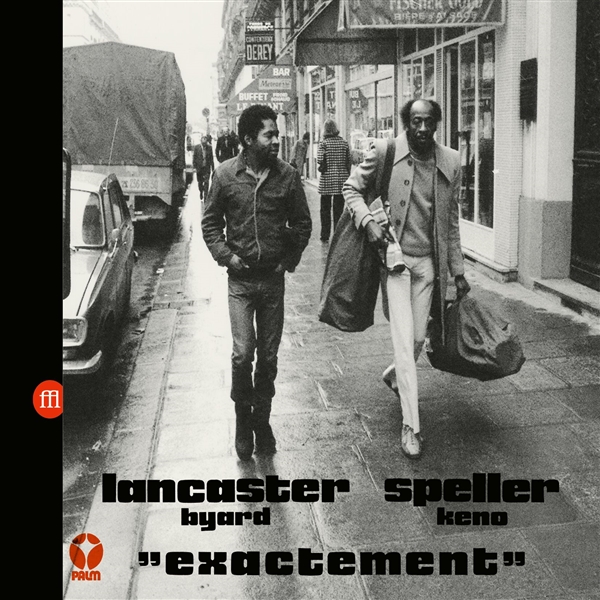
Lancaster, Byard
Exactement (2cd)
At the beginning of the 1960s, at the Berklee College of Music, Byard Lancaster met some feisty friends: Sonny Sharrock, Dave Burrell and Ted Daniel. It is easy to see why he rapidly became involved in free jazz. Once he was settled in New York, he appeared on Sunny Murray Quintet, recorded under the leadership of the drum crazy colleague of Albert Ayler. In 1968, the saxophonist and flutist recorded his first album under his own name: 'It's Not Up To Us.' The following year he came to Paris in the wake of... Sunny Murray. He would come back to France in 1971 (again with Murray) and in 1973 (without Murray for a change). This is when he met Jef Gilson, the pianist and producer who encouraged him to record under his own name again. On Palm Records (Gilson's label), he would release four albums: 'Us,' 'Mother Africa,' 'Exactement' and 'Funny Funky Rib Crib.' The recording of 'Exactement' required two sessions in the studio: February 1st and May 18th 1974 - in between the two dates, Lancaster recorded, alongside Clint Jackson, the excellent 'Mother Africa.' Two names appear on the cover of 'Exactement': Lancaster (Byard) and Speller (Keno). Byard Lancaster wanted to be precise, moving regularly from one instrument to another: first on piano, which was the first instrument he learned. On '"Sweet Evil Miss" Kisianga,' his inspiration is first and foremost Coltrane (even if leaning more towards Alice than John), this announces the storm to follow. It is Lancaster's horn-playing which really stands out: on alto (the sound of which is transformed by an octavoice on one track, 'Dr. Oliver W. Lancaster') or soprano saxophones, as well as on flute or bass clarinet, the musician walks a tightrope making the most of all the risks he takes. Using the full register of his instruments, he has fun with the possibilities. Then, Lancaster invokes or evokes Ornette Coleman, Eric Dolphy and even Prokofiev, before going into a danse alongside Keno Speller on percussion. Above all, he has a unique sound. Byard Lancaster, on whatever instrument he plays and by continually seeking, always ends up hitting the right note... ends up by playing 'exactement' the note he had to play.